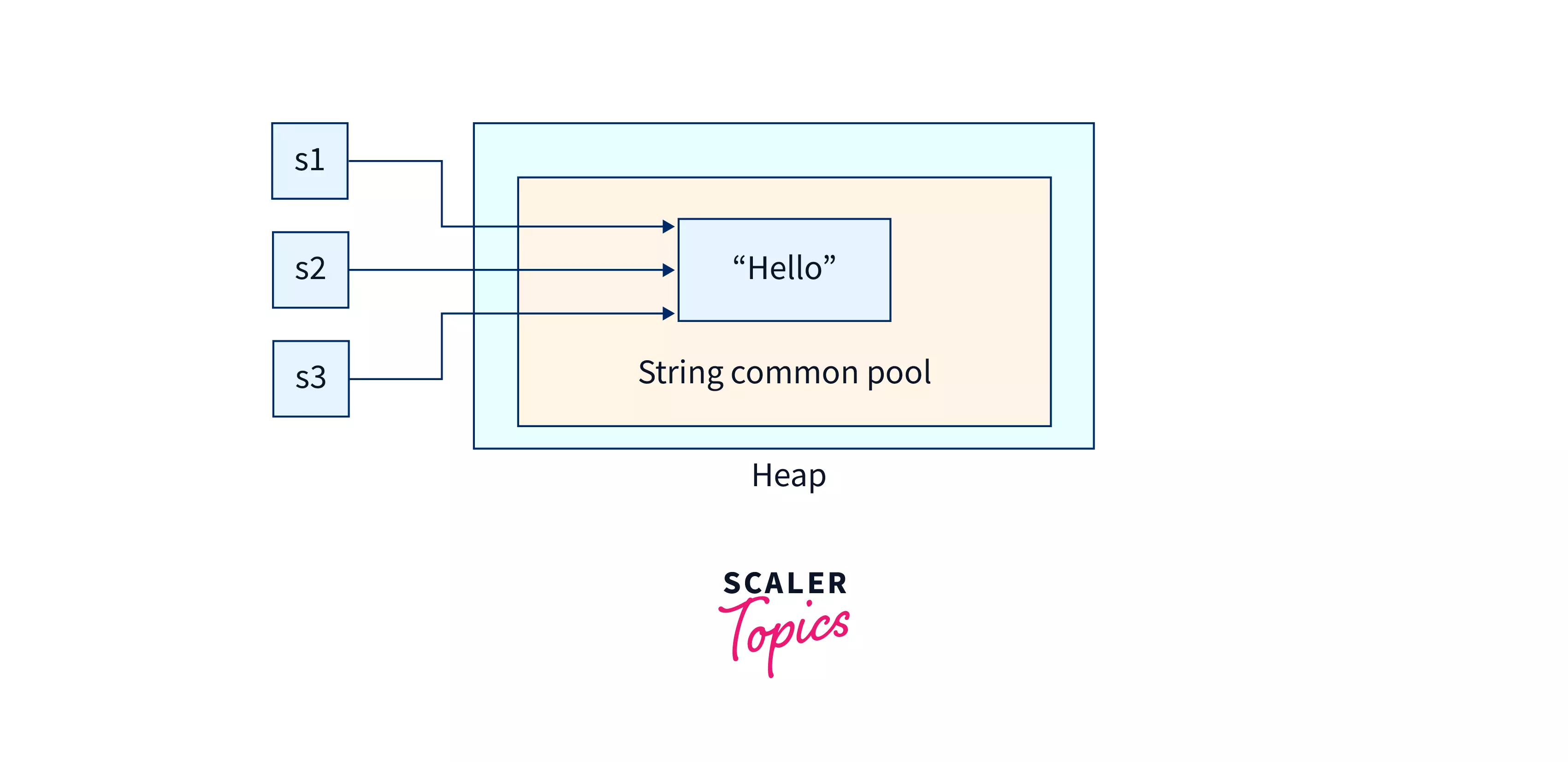Why Are Strings Immutable in Java? Recognizing the Core Principles
Why Are Strings Immutable in Java? Recognizing the Core Principles
Blog Article
Immutable Strings: A Trick Component in Ensuring Data Uniformity and Integrity
In the realm of information management, the value of immutable strings can not be overstated. These unchanging sequences of personalities play a critical duty in promoting the honesty and accuracy of information within systems. By keeping a state of immutability, data uniformity is ensured, promoting a structure of dependability whereupon critical processes rely. The idea of immutable strings transcends plain technicality; it is a linchpin in the complicated internet of data administration. As we explore the benefits, application approaches, and practical applications of immutable strings, a more clear image emerges of their important nature in guarding the electronic landscape.
The Concept of Unalterable Strings
Immutable strings, a fundamental concept in shows, describe strings that can not be modified when they are produced. Fundamentally, when a string worth is assigned, any operation that shows up to change the string actually creates a new string. This immutability makes certain data uniformity and reliability in applications, as it prevents unanticipated adjustments to the initial data.
Benefits in Information Consistency

Information uniformity is crucial in different aspects of software advancement, including database administration, multi-threaded environments, and distributed systems (Why are strings immutable in Java?). Unalterable strings contribute significantly to attaining this consistency by stopping data corruption as a result of concurrent access. In circumstances where several procedures or strings engage with the same data all at once, immutable strings work as a protect against race conditions and synchronization concerns
In addition, the immutability of strings streamlines debugging and screening processes. With immutable strings, developers can rely on that as soon as a string is established, it will remain the same, making it less complicated to trace the resource of mistakes and making sure that test cases create regular outcomes. This dependability in data taking care of ultimately results in much more steady and robust applications.

Applying Unalterable Strings
Guaranteeing the immutability of strings requires a thoughtful method to their execution in software application development. One key method is to make string courses in a manner that prevents alterations as soon as a string object is developed. By making strings unalterable, designers can boost data consistency and integrity in their applications.
To execute unalterable strings effectively, programmers should prefer producing new string items instead than changing existing ones. This practice makes sure that once a string is designated a worth, it can not be altered. In addition, any kind of procedure that shows up to modify the string must develop a new string with the desired modifications as opposed to modifying the original.
Moreover, making use of immutable strings can streamline concurrency monitoring in multi-threaded environments. Considering that immutable strings can not be altered after creation, they why not find out more can be securely shared among several strings without the risk of information corruption.
Role in Reliability Assurance
In software program growth, the usage of immutable strings plays a vital function in making sure the integrity of data operations. Unalterable strings, once developed, can not be modified, making certain that the information they stand for remains constant throughout the application's execution. This immutability residential or commercial property supplies a degree of guarantee that the data being refined will certainly not be inadvertently changed, resulting in unanticipated end results or mistakes in the system.
By including immutable strings into software program layout, designers can improve the dependability of their applications by reducing the threats related to mutable information - Why are strings immutable in Java?. Immutable strings help in avoiding information corruption or unplanned alterations, which can be especially crucial when handling sensitive information or when information honesty is extremely important
Additionally, the usage of immutable strings simplifies simultaneous processing, as multiple strings can securely access and share string data without the danger of one thread modifying the web content while an additional reads it. This aspect adds substantially to the total integrity of the software application system, making certain consistent and predictable actions in information managing operations.
Applications and System Integration
The smooth combination of unalterable strings into various applications and systems is crucial for guaranteeing robust information consistency and integrity across diverse technical atmospheres - Why are strings immutable in Java?. Immutable strings play a vital function in boosting the stability of information exchanges and communications within complicated software program environments. By integrating unalterable strings into applications, developers can mitigate the dangers connected with check out here information tampering, unauthorized alterations, and unintended modifications, consequently fortifying the overall protection pose of the system
In the context of system integration, immutable strings work as a fundamental aspect for developing safe and secure communication channels and helping with smooth information transfers between different elements. Their unalterable nature ensures that data transferred between systems continues to be verifiable and the same, reducing the possibility of variances or mistakes that can jeopardize the stability of the whole system. In addition, unalterable strings can enhance interoperability between disparate systems by supplying a standard format for data representation, allowing a lot more reliable information handling and exchange methods throughout interconnected platforms. By adopting immutable strings in applications and system combination processes, organizations can fortify their data facilities and maintain the integrity and uniformity of their details properties.
Verdict
To conclude, unalterable strings play a crucial duty in preserving data consistency and reliability in various applications and system integrations. By making certain that strings can not be altered as soon as produced, the integrity of information is protected, minimizing the danger of incongruities and mistakes. Executing immutable strings can significantly boost the dependability of systems, ultimately leading to more reputable and precise data handling.

Report this page